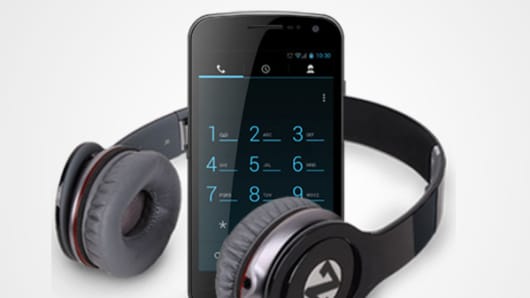A loophole in the Telecommunications Act of 1996, originally intended to help compensate rural carriers, allows the company to receive a few cents for every five minutes or so that a customer listens to the station. The exact amount depends on the carrier, but for the most part, it's only a few cents. But multiply that by close to a million customers—some of who listen for hours a day—and revenue starts pouring in.
(Read More: Why Billion Dollar Start-Ups Should Thank the Fed)
The loophole works when calls are routed through rural phone companies. Certain businesses can make money by collecting termination fees. But experts say changes in telecommunications technology have allowed rural carriers to turn this into a profit center by partnering with providers of services like free conference calling and radio.
In fact, ZenoRadio said it works in much of the same way that FreeConferenceCall.com does.
Critics of the Act, though, say this subsidy structure should be revisited, but most likely nothing will change because support is too strong on Capitol Hill.
So for the moment, ZenoRadio's business is safe.
"The model is pretty strong because of the regulatory loophole that they are exploiting. Without that, the business would be unsustainable," said Rocky Agrawal, principal analyst at ReDesign Mobile.
The company's main competitors are not your usual suspects like Pandora. That's because Pandora customers use data, not minutes.
(Read More: Google Launches Music Service, Taking on Pandora)
Pandora would love to have a model like this, but they don't receive money through carriers, Agrawal said. Instead, Pandora makes its money through advertisements.
That said, Pandora undoubtedly has a much better consumer product—and more consumers at that—but ZenoRadio essentially has a better economic model because the more customers listen, the more money Herzfeld and others like him make, according to Agrawal.
Herzfeld downplayed the subsidy and said that the carriers' payments only help with some of the costs of running his business. ZenoRadio also receives ad dollars from certain stations.
The company is a year-and-a-half old, and it hopes to tap what they think is a huge, 40-million-strong immigrant market in the U.S.
Although ZenoRadio advertises in ethnic newspapers, the company also engages in so-called guerrilla marketing tactics, such as putting together flyers for specific cultural events. They also rely heavily on the power of each community's word-of-mouth. They market directly to people who they know have called places like Ghana, Ethiopia, and Guatemala.
The company raised $1 million last January to fund its business, and it is looking to raise about $3 million more by September.



